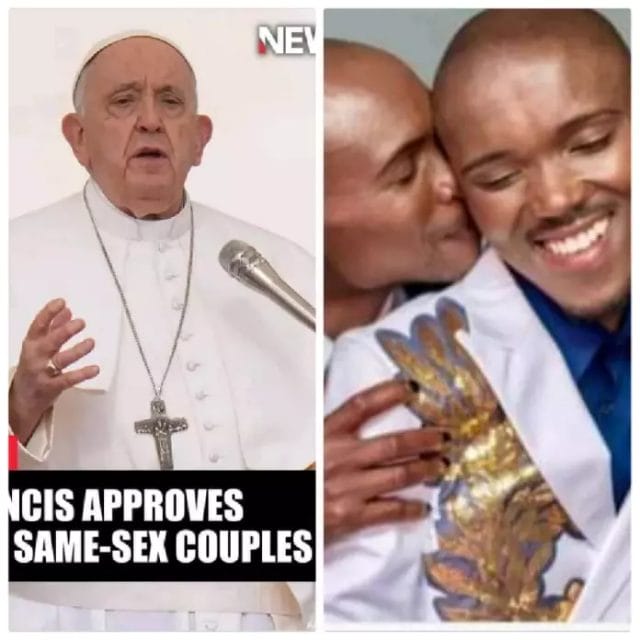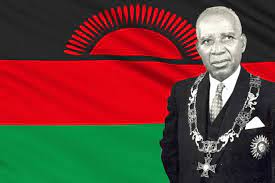Catholic Blessing for Same-Sex Couples, Gay Rights and African Church Resistance
By Leo Igwe
In a significant shift in the position of the catholic church on same-sex marriage issues, the catholic pontiff, Pope Francis, has authorized the blessing of same-sex couples. This piece of news has sent a shock wave across the catholic Christendom in Africa because many have vehemently opposed the legalization and normalization of gay marriage in the region. According to a Vatican document that Pope Francis approved, blessings of same-sex couples could be done but not as a part of the regular church rituals and liturgies. This declaration is coming at a time when churches in Africa are rallying against same-sex marriage rights and relationships. So what could be the implications for the church, especially the catholic church in the region?
The rights of gay people have been a widely debated issue as African public and parliamentarians battle and resist a supposed attempt by Western countries to impose the gay rights agenda. The discussions have been very intense in countries such as Uganda, Kenya, Nigeria, and Ghana, where some anti same-sex marriage bills have been introduced or passed. In these debates, churches, including the Catholics have largely been in support of the move to criminalize same-sex marriage. These churches claim that gay marriage is unAfrican. More specifically, churches claim that homosexuality is unbiblical and have vowed to resist any move within or without the church to sanction this unchristian and ungodly lifestyle.
Meanwhile, there are concerns that the issue of same-sex marriage would result in a schism; that it would drive a wage between the African and Western churches as many African church groups have vowed to break away if their European and Western establishments decide to solemnize gay marriage. In a quick reaction, the catholic church in Malawi has stated that it would not abide by the papal directive. And there are indications that many catholic churches in other African countries would likely not comply.
It is important to ask, how long will African churches, catholic or noncatholic, resist the recognition of gay marriage? How long will African church leaders continue to sanction and sanctify gay hate and abuse? A closer look at the situation reveals an emerging pattern: a Western church that supports same-sex marriage and an African church opposed to gay rights. Although there are churches in Europe and America that are against same sex marriage, western Christianity has largely accepted homosexuality. Western churches have witnessed a shift in their position on gay marriage and relationships.
In other words, while many Western churches now consider same-sex relationships as Christian or Biblical, as compatible with 21st century Christianity, their African counterparts regard homosexuality as unchristian, sinful, and criminal.
Now if I may I ask: What do African churches gain by sanctioning gay hate and abuse? What do African churches know about Christianity or the ‘Word of God’ that Western churches and theologians do not know? Is it not the West that introduced Christianity to Africa and Africans?
African Christians should see a shift in the position on gay rights as a development that they should embrace and not detest or deplore. This shift demonstrates leadership, moral and theological leadership. African churches should abide by this directive. Persistence in opposing such progressive developments, such as the sanctification of gay marriage, has a lot of unpleasant consequences.
African Christianity risks become a religious throwback. African churches will likely get caught in a trap, the trap of the Western Christian past. This resistance will turn African churches into theological and liturgical backwaters. African Christianity will become embodiments of outdated, archaic, and primitive Christian ideas and practices. Already, African churches are notorious for witch hunting. They are the lead perpetrators of modern-day witch hunts. Witch hunting ended in the West centuries ago. Today, western churches are regretting their role in this horrific episode. But contemporary African churches are hotbeds of witchcraft accusations, witch trials, and persecutions. African churches cannot afford to add to this already ugly trend and become hotbeds of gay hate, persecution and abuse.
However, there is a reason to be optimistic and hopeful about the future. It is unlikely that this dark prospect would materialize. There are chances that African churches would eventually join the rest of the world in upholding the rights of gay people. This sense of optimism is rooted in the fact that African churches have in their ranks some progressive, open and liberal-minded clerics who would work with Pope Francis and other Western leaders to free African churches from the bondage of gay hate. One such cleric is the Ghanaian cardinal, Peter Turkson. In a recent interview, Turkson spoke out against the anti-gay bill in Ghana. He said that homosexuality should not be made an offence against the state; that the issue of gay sex needed education and understanding, not criminalization. The statement was thoughtful and timely, and hopefully would contribute to killing Ghana’s anti gay bill.
In conclusion, from all indications, African churches are out of step with 21century humanity and Christianity. And as Turkson stated, it’s time to begin educating Africans and helping African people understand and make a religious and cultural shift. African Christians should realize that homosexuality is not a crime. That homosexuality is human and natural. And that gay rights are human rights.
With better education and awareness, the African church resistance would fizzle out. African Christian homophobia will be defeated.
The stiff opposition to homosexuality in African churches would turn into a groundswell of support for gay rights in the region.
Igwe holds a doctoral degree in religious studies from the University of Bayreuth in Germany.




